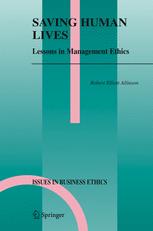

Most ebook files are in PDF format, so you can easily read them using various software such as Foxit Reader or directly on the Google Chrome browser.
Some ebook files are released by publishers in other formats such as .awz, .mobi, .epub, .fb2, etc. You may need to install specific software to read these formats on mobile/PC, such as Calibre.
Please read the tutorial at this link: https://ebookbell.com/faq
We offer FREE conversion to the popular formats you request; however, this may take some time. Therefore, right after payment, please email us, and we will try to provide the service as quickly as possible.
For some exceptional file formats or broken links (if any), please refrain from opening any disputes. Instead, email us first, and we will try to assist within a maximum of 6 hours.
EbookBell Team

5.0
40 reviewsThis is a pioneering work. Recent disasters such as the tsunami disaster continue to demonstrate Professor Allinson’s thesis that valuing human lives is the core of ethical management. His unique comparison of the ideas of the power of Fate and High Technology, his penetrating analysis of the very concept of an "accident", demonstrate how concepts rule our lives. His wide-ranging investigation of court cases and government documents from the seventeenth through the twentieth centuries, and from places as diverse as the USA, UK and New Zealand provide ample supporting evidence for the universality and the power of explanation of his thesis. Saving Human Lives will have an impact beyond measurement on the field of management ethics.
Patrica Werhane, Peter and Adelline Professor of Business Ethics, Darden School, University of Virginia and The Wicklander Chair of Business Ethics and Director, Institute for Business and Professional Ethics, Depaul University, Founding Editor, Business Ethics Quarterly, Honorary President, Society for Business Ethics
‘Saving Human Lives gives a step by step account of how management systems can be built that can prevent hitherto "unpreventable" disasters. Professor Allinson weaves convincing arguments from original linguistic, literary and ethical analyses and shows how these arguments apply to highly detailed and well documented case studies. Those of us in the field of business ethics are grateful for this creative combination of philosophical argumentation and the marshalling of widespread, empirical evidence that persuades us that, notwithstanding commonly held beliefs, most industrial crises are preventable through sound management structures and decision-making processes only when they are rooted in ethical values and beliefs on the part of top management.’
S. Prakash Sethi, President, International Center for Corporate Accountability, Inc.,
University Distinguished Professor, Baruch College, City University of New York